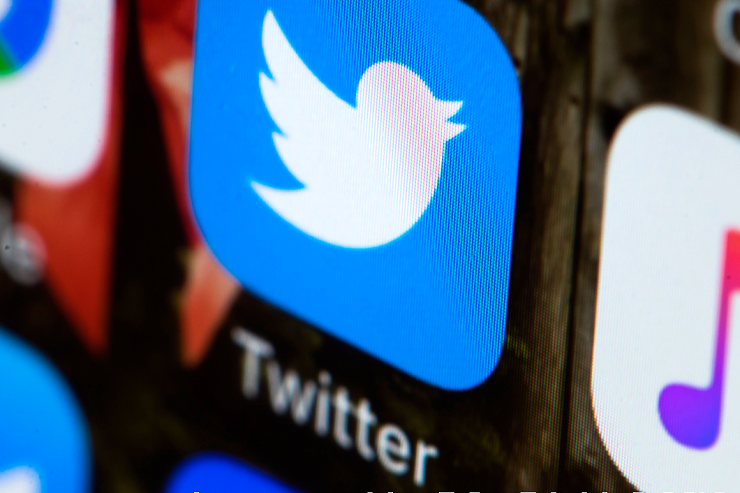“If freedom of speech is taken away, then dumb and silent we may be led, like sheep to the slaughter.” ― George Washington
As of January 6, 2021 Twitter decided to suspend US President Donald Trump’s account, for all intents and purposes putting a sock into the man’s mouth for IT didn’t feel like entertaining his political rants. And though many will argue that such measures to silence Mr Trump were wielded in the public’s best interest, in the context of the violence we all saw unravel at Capital Hill this Wednesday, I’d like you to consider for a moment the implications of such a unilateral move.
And for those who missed it, Jo Biden’s presidency was certified by Congress late last night.
Twitter, however familiar the platform has become, remains forever a private entity, a corporate body that cannot claim to legislate or in this particular instance rule over our realities by shutting out certain voices and/or certain ideas. Such powers are far too great for any one individual or corporation to exercise without oversight and lawful recourses. One does not simply suspend a democratically elected president’s opinions on the basis that they clash with the CEO’s own personal views and interests.
Let us not pretend that Twitter was incensed by Wednesday violence … let’s not be so blind and egregiously naive as to believe that Twitter fancies itself the guardian of all things virtuous and fair: like freedom, democracy and civil liberties. Maybe more to the point let us remember that it is not Twitter’s job to moderate our views and shape our thoughts process. If free we are, and indeed free we want to stay, then we ought to defend our rights to free speech – however vile such speech may at times be.
To silence is to dictate and to any form of diktat sits contarian to democratic principles.
I will quote here another US President, President Harry S. Truman, who, in a speech before Congress, warned:
“Once a government is committed to the principle of silencing the voice of opposition, it has only one way to go, and that is down the path of increasingly repressive measures, until it becomes a source of terror to all its citizens and creates a country where everyone lives in fear.”
He was of course referring to calls by state agencies to ‘monitor’ and ‘contain’ certain dissident voices to preserve the integrity of the State, but the essence of his speech applies here perfectly still – only now it seems the power to silence, monitor, and repress lies now in the hands of corporations as opposed to state agencies. I find the idea slightly more unnerving …
Whatever anyone may think of Trump: hate him, loathe him, mock him, adore him, support him, idolise him, he ought not to be shut out so that others’ voices could rise above to better dominate the landscape. This is not how healthy democracies function, this is now how you defend a nation’s democratic future, and it is certainly not an example you want to set out to the world and still argue that America is the Land of the Free and the Home of the Brave.
Back in 2018, University of Detroit Mercy law professor Kyle Langvardt wrote a pertinent commentary in the Georgetown Law Journal on the matter. She said, “It seems obvious to me that this is an unacceptable way for a liberal society to do business … What concerns me is that we entrust a few unaccountable and self-interested tech companies to govern online discourse.”
Twitter most definitely overstepped its bounds, thus setting a precedent few have even bothered to challenge for they are only too glad the target was Trump. I often marvel at people’s ability to rationalise their lack of intellectual consistency … call it cognitive dissonance if you will. To hold to the principles of free speech is to agree to bear the poison of opposite views and opinions.
There is another important point I’d like to make, one which too few have even bothered looking into so busy they were to blame Mr Trump for the chaos we all witnessed on our screens. To accuse is one thing, to prove beyond the shadow of a doubt is another. Those ‘agents provocateurs’ we saw commit acts of vandalism and violence may not have been Trump’s MAGA army … until we know for sure, we should not assume; especially since it so conveniently fits the very narrative which rationalises censorship.
But then again the whole point of this blame exercise was exactly that: to muddle half facts with fast-made conclusions to better manipulate public thinking and thus justify one’s decision to self-righteously silence the proverbial “Opposition”- in this case Trump and his supporters, so that the field would be cleared.
I will leave you here to ponder over the words of John Stuart Mill – undoubtedly one of the greatest thinkers of our Western philosophical canon.
The basic thrust of his argument on Free Speech is set out in a remarkably succinct form in the following passage of his essay, On Liberty:
“…the peculiar evil of silencing the expression of an opinion is that it is robbing the human race; posterity as well as the existing generation; those who dissent from the opinion, still more than those who hold it. If the opinion is right, they are deprived of the opportunity of exchanging error for truth; if wrong, they lose, what is almost as great a benefit, the clearer perception and livelier impression of truth produced by its collision with error.”
Catherine Shakdam is a research fellow at the Al Bayan Centre for Planning & Studies and a political analyst specializing in radical movements. She is the author of A Tale of Grand Resistance: Yemen, the Wahhabi and the House of Saud. She writes exclusively for the online magazine “New Eastern Outlook”.

